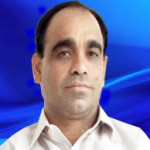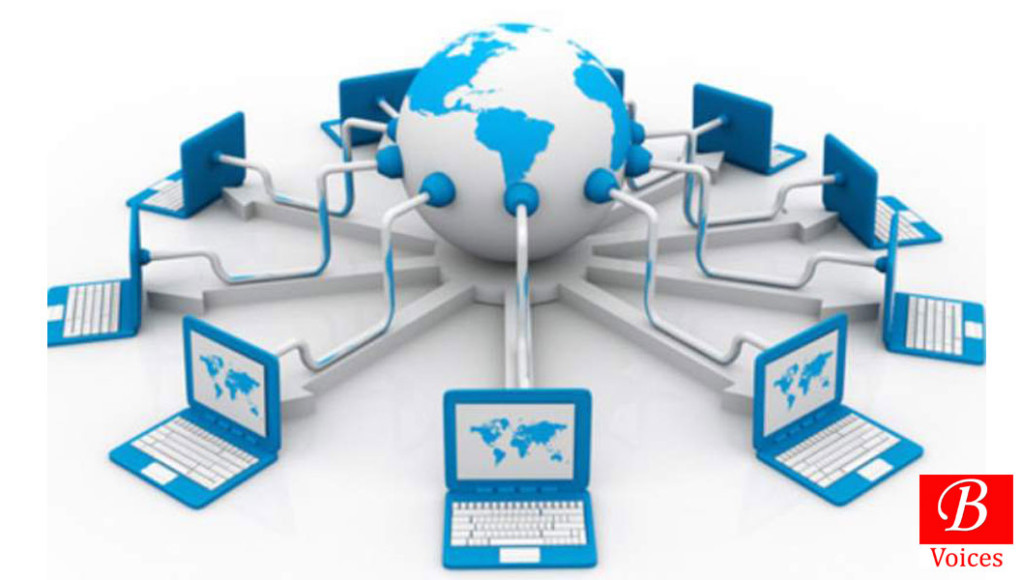 Shaikh Abdul Rasheed
Shaikh Abdul Rasheed
The World Bank’s World Development Report titled “Digital Dividends” 2016 revealed that globally there are 3.2 billion internet users against a total population of 7.4 billion, which leaves 57 percent population of the world unconnected. Worse still Pakistan is far below the global average as 165 million people or 83 percent people of the population (200 million) are found to be offline in the country. India tops the list of the world’s offline populations, followed by China and Indonesia while Pakistan ranks fourth, one place above Bangladesh. Multifarious factors may be for people in all the other top listed countries but in Pakistan, bucolic population, poverty, illiteracy and lack of interest of the government to develop digital or information technologies are vital factors responsible for being offline.
The report shows that only 31 percent people in developing countries and 80 percent in high income countries have access to the internet. The report justifies that gap exists between developing and developed due to access, affordability and unavailability of internet. In this way, the gap prevails in bucolic, cities and metropolitan populations in Pakistan. This is the reason that over 50 percent of Pakistan’s population uses mobile phones but internet users remain 13 percent of the population.
In Pakistan, the main reason to be offline is prevailing high illiteracy. According to the proved facts and figures, the over current literacy rate is 56 percent but in rural areas literacy rate is more lesser in comparison to urban areas where ratio of literate women will not be more than 20 percent. There is colossal quantum of such mobile users who even do not know how to save contact numbers of their friends and relatives in their cell phones. They are unaware how to draft SMS. They memorize contact numbers of their Nears and Dears and note cell phone numbers of other friends and relatives in their diaries. It is clearly comprehensible that they do not have capability to use internet.
The Economic Survey for 2013-14 revealed figure of the World Bank’s Poverty Head Count Analysis 2014 that at the poverty line $2 per day in line with international standards for middle-income countries, 60.19 percent of the population fall below poverty line in Pakistan. A country where a gigantic number of people live in the abject poverty which is hardly able to buy two times meal for survival in the world. The access and affordability of internet usage is only the unrealizable dreams but not reality for these people.
The crystal clear fact stands that in many states of the world, digital or information technologies has boosted growth, expanded opportunities and improved service delivery. However, disappointedly, in Pakistan, the expected development advantages of the technologies have displayed dismal results. The government has not taken practical initiatives to develop digital or information technologies. Still the Ministry of Information Technology or provincial Information Technology departments are dysfunctional. To develop information technology in every nook and corner of the country and to create awareness among the general public, field offices have not been established on division and district level. The Information technology Training programmes, to equip government employees and civil society members with computer and internet skills, have been launched neither by the ministry nor the provincial departments.
The advent of internet and growth of mobile technology were supposed to empower citizens and to boost government accountability by enhancing people’s ability to influence their government’s actions or policies. But regrettably, in Pakistan the digital technologies could not bring fruitful and positive outcomes. There are only 13 percent internet users and there is large number of poor, semi-literate and illiterate mobile users among 50 percent mobile users in the country. So it is intelligible that the small and semi-literate and illiterate people cannot influence or control government’s policies.
This is fact that there are negative and positive usages of internet. In Pakistan, the trend of searching social media sites like Facebook, Twitter, and WhatsApp is sky-scraping as compared to other informative sites. A gigantic number of the social media users remain busy a great portion of time of day in worthless activities. The pictures, videos and unnecessary messages are posted and shared by them but information, government policies and actions are not posted, shared, and discussed. This is due to lack of interest in social, political, and economic problems and bad governance government policies. They are unaware of value and influence of their point of views expressed on the issues and problems.
To develop human resources in the field of Information Technology, in order to compete worldwide, the government had made efforts to establish Information Technology institutes in the country during last two decades. Today we have a great number of graduates and Masters of computer science. These IT experts have potential to bring revolutionary development in IT industry. But due to lack of interest to develop the industry there are thousands of jobless IT graduates and masters degree holders. To stand shoulder to shoulder with the nations fully equipped with IT, government of Pakistan has to take responsibility to create job opportunities, initiate IT training programmes to provide easy access to internet, and increase literacy rate especially in rural areas.
Writer is Pursuing M. Phil in Sociology with specialization in child rights from Shah Abdul Latif University, Khairpur, Sindh. Follow him on Twitter and Facebook.
Share your comments!








